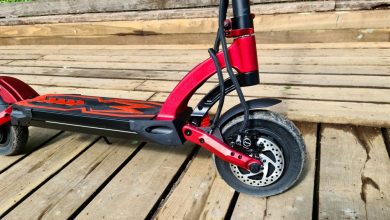The Beginning of an Amazon FBA Business

Are you interested in starting an Amazon FBA business but unsure where to start? Maybe you have already started but are looking for tips on how to improve your setup, or perhaps you want some advice on how to get into the Amazon FBA game in the first place. In any case, there are many ways out there, and Amazon can be very overwhelming if you’re not sure what you’re doing, so here are some great resources that will help you get up and running.
What is Amazon FBA Business?
Amazon Fulfillment by Amazon (FBA) is a program that lets you store your products in Amazon’s warehouses, and they handle picking, packing, shipping, and customer service on your behalf. If you can find a great product to sell online, selling it on Amazon is one of the simple ways to get started with your own business. More than a million active sellers on Amazon are making money from their products every day. To get started with your business on Amazon, you need to follow these simple steps:
- How to choose which Amazon FBA business model will work best for me?
- What are some easy Amazon FBA businesses I can start right now?
- How do I start my Amazon FBA business without spending too much time or money upfront?
- Is it worth working for myself with an Amazon FBA business?
- How does Amazon handle customer service issues when you’re using its fulfillment services?
- Is there any way to tell if my items will sell better as Prime items or non-Prime items?
- Can I hire someone else to ship my inventory from one warehouse to another warehouse instead of doing it myself?
Selecting your product
The first step to starting your Amazon FBA prep business is selecting a product. Sure, there are a million different niches but don’t think you have to get overly creative. Stick with a classic niche that sells well and has good margins. That will increase your chances of success and ensure you can sell inventory at competitive prices. But more importantly, it’s just a lot easier to get started when you’re not trying to reinvent some super-specific wheel no one wants or needs. Think things we buy every day like shampoo or toothpaste that people would be happy with purchasing again and again from Amazon Prime instead of Target or Walmart.
Creating Your Product Listing
The Amazon Marketplace is known for selling just about anything. The key to a good Amazon FBA business is to market your products effectively. And while marketing can be intimidating, there are plenty of ways to approach it with a plan. Many experts recommend creating a marketing plan early on, even before launching your first product. If you’re not sure where to start, here are some proven tactics for putting together a solid campaign:
- Conduct thorough keyword research.
- Use images in your ads.
- Offer free shipping and low prices.
- Leverage Amazon Marketing Services (AMS).
It’s important to note that these strategies won’t work for everyone, so don’t be afraid to experiment and tweak as needed.
Launching your product and getting sales
Now that you’ve picked a winning product, what’s next? You have to do some work! Although it’s tempting to think you can send your products into online retail oblivion and see success, that isn’t how it works. To begin with, when your products sell, you still have to ship them out—and that means packaging up all those orders. In addition, each order has a tracking number tied to it; if anything goes wrong with shipping or one of your customers gets in touch with customer service, there is documentation available (provided by Amazon) regarding those orders, so here you will learn about Launching Products To Amazon Marketplace.
Marketing your products on Amazon FBA Business
Now that you’ve signed up for a seller account and picked a product, it’s time to market your products. You have two main marketing avenues for each development: Create a professional listing on Amazon (with photos and text) Promote it in relevant Facebook groups to get immediate sales. Know that promoting your products on Facebook will likely lead to low-quality reviews, but they may be enough to drive sales immediately; you can always edit or replace those bad reviews later if they hurt your ranking. If you’re looking for more reviews, consider reaching out directly to influencers in relevant niches—they’ll often be happy to do an exchange with you if they can review your product. This is especially true if you sell specialized niche products.
Conclusion
Starting a business is never easy. Even if you’re lucky enough to have an idea with a strong return on investment and a rapidly growing market, you’ll still need to put in countless hours of hard work before your company can support itself. If it helps, remember that most businesses fail before they make any money at all—and if you’re self-funding your venture, failure isn’t just likely but also expensive. I suggest getting into retail arbitrage through third-party platforms like Amazon or eBay to start as quickly and cheaply as possible. Selling other companies’ products will allow you to test your product or service in a relatively low-risk environment while still earning money for doing so.






